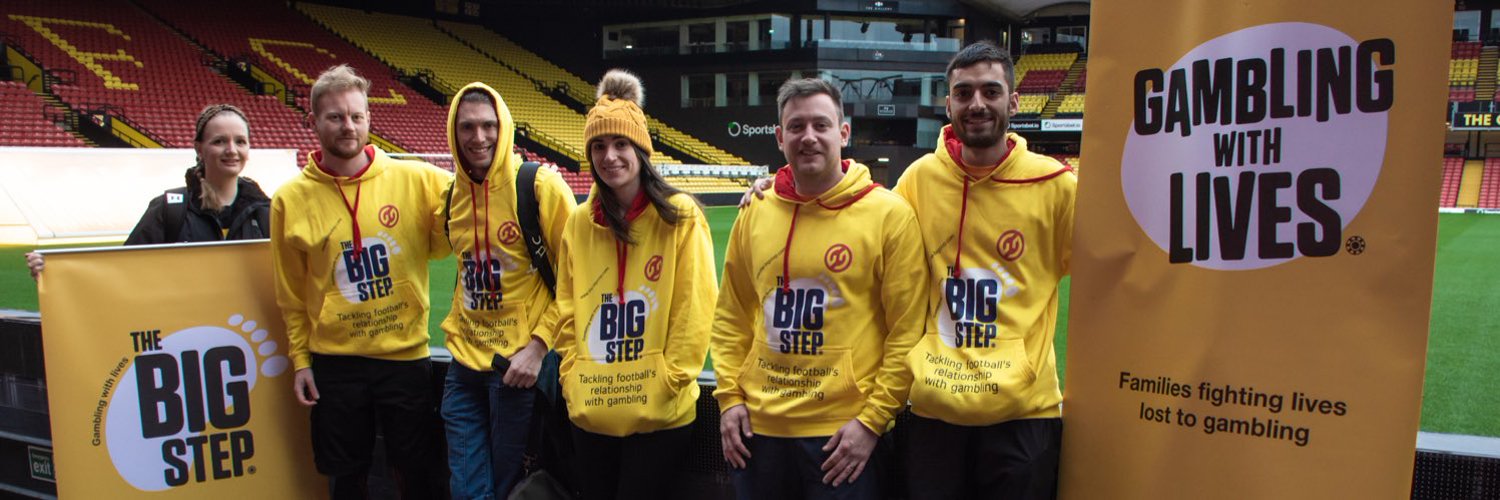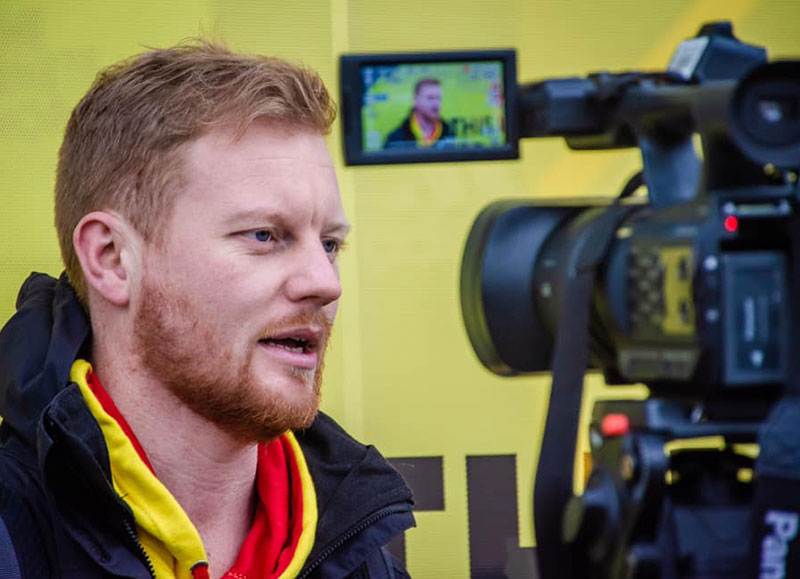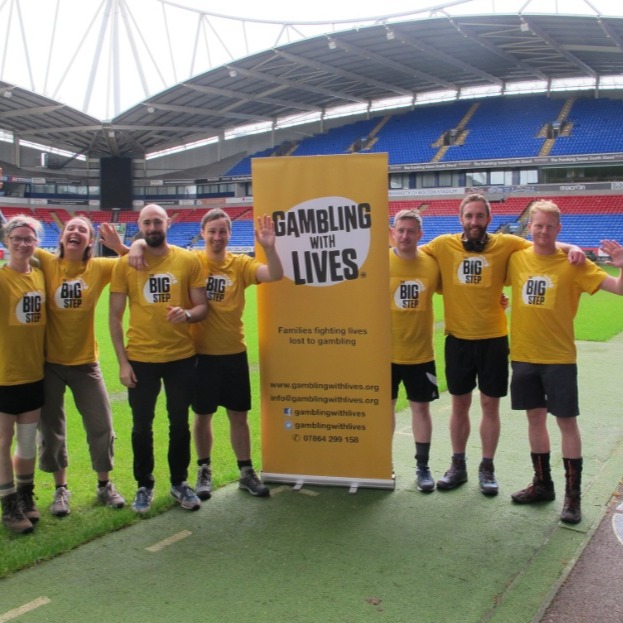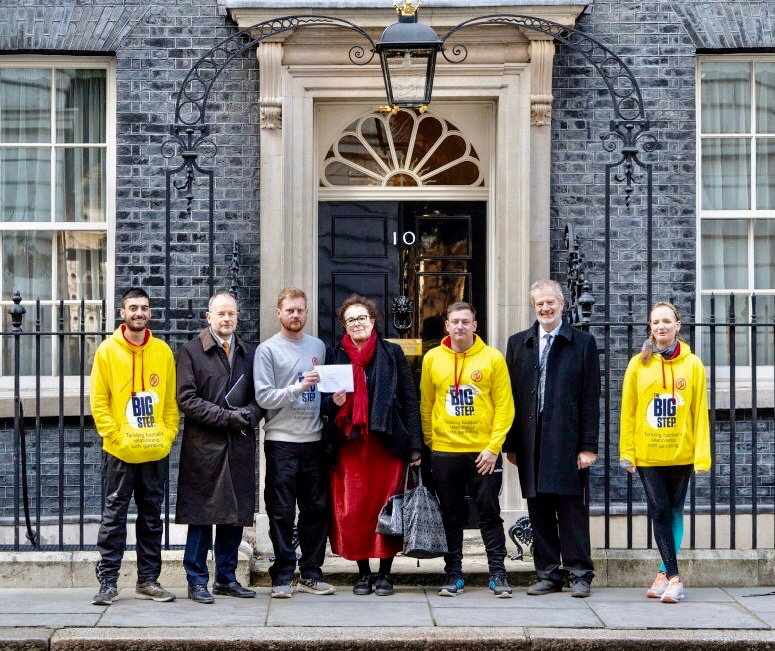Recovering gambling addict James Grimes takes ‘big step’ towards recovery with campaign against gambling sponsorship in football
Founder of the anti-gambling harm campaign group, the Big Step, James Grimes reveals he lost friends, jobs, and £100,000 before turning his life around.
The seeds for an addiction lasting 12 years were planted when 16-year-old James Grimes capitalised on the verification loopholes in his local bookmakers. It began with what he believed to be small innocent £5 bets, predominately on the football. But soon after, he had signed up to online gambling websites under the false alias of his parents, opening a whole new arena to gamble on.
By the time he had turned the legal age of 18, Grimes was betting on pretty much every sport, casino, and bingo game possible. Things soon worsened when he went to university with plenty of free time and money his addiction began spiralling out of control. By the time he had finished his studies, Grimes found himself in mountains of debt and the addiction had destroyed everything around him.
“I spent a lot of time in denial thinking that my addiction wasn’t as serious as it was. It was getting to a point where I was setting my alarm for 3 am to go and put a bet on a Vietnamese football game and I was crying myself to sleep because I lost all my money”, he admits.

Over the 12 years Grimes’ addiction took hold he estimates he finished with over £100,000 worth of debt. But it’s not just the financial implications a gambling addiction brings, it consumes your life-impacting your mental health and those around you.
“I lost two jobs, I lost friendships, I lost relationships and trust with my family. I finished with £100,000 worth of debt but it’s the thing that I look back on with the least amount of regret, to be honest.
“It’s the impact on mental health, it definitely caused depression and anxiety, I had no motivation to do anything and rock bottom was the last time I gambled in April 2018. I don’t know if I was suicidal, but I would say that I couldn’t go on any more with that addiction running my life.”
Being honest with himself about his addiction was the first step to recovery. After seeing the impact his gambling was having on those around him, Grimes turned to his family for help, in particular his mother, who he gave his bank details to so she could check on his spending. It was then about replacing his gambling with meaningful activities. Grimes then began to exercise regularly and socialise more to try to make amends for the way he had damaged friendships in the past. He stresses the unwavering support and understanding he had from every single one of his friends and family.

Grimes was one of an estimated 600,000 problems gamblers in the UK with this addiction the cause of around 500 suicides per year. Gambling addicts are believed to be 3-4 times more likely to commit suicide than those suffering from other forms of addiction, yet only as little of 5% seek help and just 1% get treatment.
The association between football and the gambling industry was the gateway for Grimes’ addiction. It got to the stage where he was unable to watch a football match without placing a bet on it. He, like many, became triggered by the impulsive adverts which tell you to bet on markets such as the in-play and the first goal-scorer. Grimes believes that the relationship between gambling and football is at saturation point. This relationship has become normalised and glamorised for young fans with bookmakers featuring all too regularly on a matchday experience.
Currently, 13 Premier League sides in the 2019-20 season are in a partnership with a betting brand and 17 out of the 24 championship sides are sponsored by bookmakers with League One and League Two both sponsored by Sky Bet. Bookmakers are found on advertisement boards surrounding the pitch, on shirts and in some cases in the stadium name. Grimes claims this is a deliberate ploy from the gambling industry.
“If they have their brands within football, it makes them trustworthy because people trust football, people trust the FA cup, people trust the Premier League. When you see brands associated with your favourite clubs and your favourite players you don’t then associate those brands with severe addiction risk and even suicide,” Grimes explained.
“I think it’s a deliberate ploy on behalf of the gambling industry to infect football. This is because they know young men, who watch football the most, are also the biggest demographic for their target market.
“It’s about brand recognition and brand recall. There is a study and kids were asked about gambling advertising and the most common response in regard to how you portray gambling was that it’s a thing where you can get lots of money. That is just the ultimate example of what the gambling advertisement does to children.”

Grimes wants to use his story to spread the message that the current level of gambling advertisement in football is dangerous. Six months after going clean, he founded the Big Step, a charity which looks to tackle football’s relationship between with gambling through campaigns and sponsored walks to clubs with gambling partnerships.
“I want to tell as many people as possible that certain companies, for example, Betway, that sponsor West Ham, allowed me to gamble £6,000 in 20 minutes without doing any checks. This is a company which is on the front of a football shirt and on Match of the Day every week. I just feel angry and that it is an injustice,” said Grimes.
“It was initially just going to be a one-off walk across six northern based clubs that have gambling based shirt sponsors to try and get them to review that relationship. But actually, there was a real appetite to turn it into a full-time campaigning project to work with football clubs to talk about this relationship and to do more to try and help their fans because nothing is being done to help the fans.”
The Big Step’s latest campaign in partnership with Gambling with Lives saw them in February walk 100 miles visiting six London based clubs before presenting the government a letter calling for change. This letter outlined the legislative changes they wanted to see implemented, drew on their own experiences and that of Gambling with Lives and used key stats such as 13% of football fans are happy with a gambling shirt sponsor and revealed that 89% of the Match of the Day programme has a gambling brand visible.
“We started at Reading, then went to Watford, West Ham, Crystal Palace, Fulham, QPR and finished it with a Wembley to Downing Street walk. Every single club except West Ham engaged with us, to the point where we are hoping to try and doing something longer-term with QPR and Watford.
“We want to see a complete legislative change which includes a ban of sponsorship of leagues, sponsorship of shirts, pitch-side boarding, using footballers to promote gambling and no more social media backed gambling adverts.”

Recently, Grimes has coordinated a partnership between the Big Step and Tranmere in League Two after their chairman and former FA Chief Executive, Mark Palios stated football’s gambling relationship had ‘gone too far.’ Their partnership will see the Big Step talk to players about problem gambling, educate local schools and develop a link between GamBan and the NHS gambling clinic in Manchester to support fans who are suffering from addiction.
Despite feeling like his efforts were building momentum for change in the footballing world, Grimes fears the coronavirus pandemic will leave clubs no choice but to accept financial backing from gambling firms going forward. He urges clubs to be proactive rather than reactive and make a principled stance against gambling sponsorship.
“We saw some real momentum when handed in the letter to Downing Street and there’s a lot of MP’s who support what we are trying to do, but I have a big concern now because football will be in such a precarious financial state when we go back to normal.
“Gambling is going to be an offer which is too hard to resist for some of the clubs. A lot of fans who would seek their enjoyment by attending the games might replace that by betting on the games.”